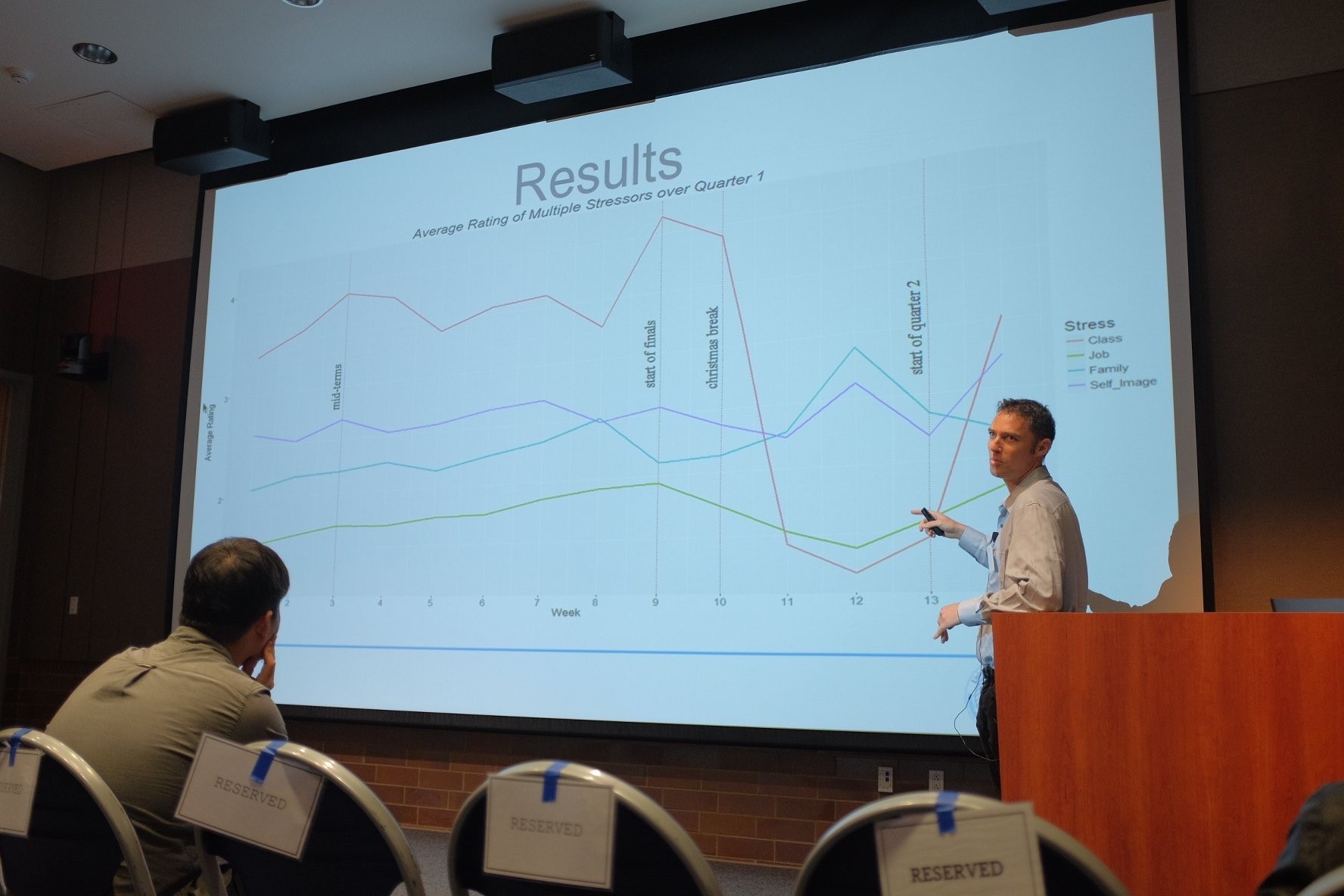On May 11th, Professor Chen Li at University of California, Irvine hosted the SoCal Social Analytics Workshop. This workshop brought together researchers across the UC system interested in using social data to solve complex societal problems.
A main theme of the event was social data and public health. Professor Nadir Weibel (UCSD) built on research done by UCIPT and demonstrated how to use Twitter to estimate HIV risk-behav iors in the San Diego area. Dr. Sean Young (UCLA/UCIPT) presented results from a sleep-tracking study that monitored UCLA freshmen’s Twitter conversations. The audience asked thoughtful questions about how to use this information to provide interventions.
iors in the San Diego area. Dr. Sean Young (UCLA/UCIPT) presented results from a sleep-tracking study that monitored UCLA freshmen’s Twitter conversations. The audience asked thoughtful questions about how to use this information to provide interventions.
Some presentations had an international perspective. Professor Molly Roberts (UCSD) discussed her research examining online Twitter posts by people in China who use VPN to get around the “Great Firewall.” Professor Gloria Mark (UCI) shared her work on tracking collective war experiences in Mexico and Iraq using by analyzing blog posts.
Naturally, when discussing using social data for research and surveillance purposes, ethics questions tend to arise.  There was an expert panel at the end of the day that discussed ethics issues in social data. The most perplexing questions were around using public social media posts. Most social media platforms like Twitter and Facebook allow the user to decide who sees their posts. If you are posting publicly, should an organization be allowed to harvest that data and use it to create a surveillance tool? It would be impractical to get consent from every user when mining such large amount of data. How should researchers disclose their data mining?
There was an expert panel at the end of the day that discussed ethics issues in social data. The most perplexing questions were around using public social media posts. Most social media platforms like Twitter and Facebook allow the user to decide who sees their posts. If you are posting publicly, should an organization be allowed to harvest that data and use it to create a surveillance tool? It would be impractical to get consent from every user when mining such large amount of data. How should researchers disclose their data mining?
